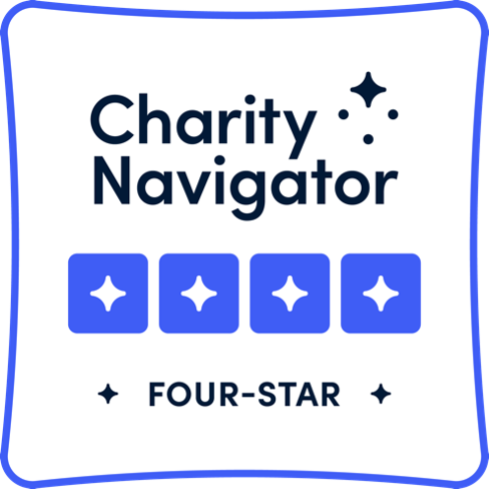This Q&A is the continuation of a discussion that took place Aug. 27 between Sameera Fazili of the Federal Reserve Bank of Atlanta, Latresa McLawhorn Ryan of the Atlanta Wealth Building Initiative, John Helton of Atlanta CareerRise and United Way of Greater Atlanta’s President and CEO Milton Little.
Question: How can Atlantans volunteer with the Atlanta Wealth Building Initiative (AWBI)? How can everyone play a part in closing the racial wealth gap?
Answer: To get more involved with the Atlanta Wealth Building Initiative, you can go to their website or follow them on social media.
- Facebook: https://www.facebook.com/ATLAWBI
- Twitter: https://twitter.com/ATL_AWBI
- LinkedIn: https://www.linkedin.com/company/awbi
Q: How will the Federal Reserve Bank of Atlanta and the Atlanta Wealth Building Initiative institute measures to help track the national need for new market jobs and training, as well as housing?
A: The Federal Reserve Bank of Atlanta monitors several trends in employment and labor. They also create and maintain resources that examine some hypothetical scenarios. These tools help leaders across many industries to design better initiatives and improve equity.
The Jobs Calculator calculates the average monthly employment change needed to achieve a target unemployment rate after a specified number of months, and the assumed labor force growth. See the “Surveys and Statistics” tab for more information on the formulas, definitions and data behind the Jobs Calculator.
The Atlanta Wealth Building Initiative is an intermediary that seeks to achieve shared prosperity by closing the racial wealth gap through community wealth building strategies. Learn more here.
Q: What kind of thinking and plans are in place to support communities so severely impacted by the multiple pandemics: COVID, 1619, social and racial injustice and inequity, inequitable health access, education stress, hunger and housing — especially related to safety and security? How can our Child Well-Being Index inform solutions?
A: United Way has always supported the community through times of crisis, and this is certainly a time when philanthropic, public and private sector resources are critically needed to assist communities that have been disproportionately impacted by COVID-19. This crisis has also exacerbated and shed light on long-standing racial inequities that must be addressed as we work towards recovery.
United Way has deployed three different funds that are working together to address multiple needs.
- The COVID-19 Response and Recovery Fund: The resources from this fund support those most vulnerable to the economic and health-related impacts caused by the pandemic, addressing their most urgent needs. Examples of assistance include helping families remain in stable housing, obtain needed healthcare, receive technology supports and access broadband internet.
- The Child Well-Being Impact Fund: A comprehensive pool of resources that invests in nonprofits advancing our long-term aspirations of having Strong Learners, youth who are College and Career Ready, families that are Economically Stable and communities with a Brighter Future. These programs and organizations are a critical part of how we collectively rebuild and ensure that everyone in our region thrives.
- The United for Racial Equity and Healing Fund: A complement to these two funds that invests in organizations led by, and focused on, Black, Indigenous and People of Color (BIPOC) communities. Funding helps to build capacity, continue civic engagement efforts and build greater awareness about the roots causes of racial inequities.
Together, these funds are helping thousands of families reach their greatest potential and improving chances of upward mobility for low-income, BIPOC children across the region.
Q: I support increasing wages for frontline workers. However, I just heard a webinar on how the Asset Limited, Income Constrained, Employed (ALICE) problem impacts [frontline workers] on the benefits cliff, and they may not want the wage increase because it will impact them negatively. There are 21 states where United Way is involved in addressing this challenge. What is Georgia doing to help with this challenge?
A: In Georgia, there are many families that would be considered ALICE families.* 3.6 million Georgians make $24,000 a year or less. The average hourly wage required to afford basic needs in Georgia is $24.14. This is more than triple the federal minimum wage of $7.25 per hour, and nearly four times Georgia’s minimum wage of $5.25 per hour. It is extremely important to build awareness among leaders in all sectors about looking beyond unemployment numbers. ALICE analysis and the Child Well-Being Index are both tools that help to show a more comprehensive set of data about the forced choices that families face and the barriers within systems that prevent families from upward economic mobility.
Research has shown that a family’s economic success may be limited if their income comes from an inflexible job lacking wage progression. UWGA has focused on Economic Stability to address this challenge. Our “Build Wealth” strategy supports financial education, as well as financial coaching to help families better manage their finances and get connected to safe, affordable financial products and services.
Our “Close the Skills Gap” strategy supports programs that increase the opportunity for low-wage workers to increase their skills and advance into higher-paying jobs. By focusing on these strategies, we help move families away from government assistance, and towards financial independence.
We also support policy efforts that try to address issues important to this group and many of our partners have developed programs that target some ALICE groups (for example, families in extended stays that could benefit from additional rental support).
Below are resources from the Georgia Budget and Policy Institute and the Federal Reserve Bank of Atlanta.
- Low Wages and Steep Cliffs
- Benefits Cliffs and the Financial Incentives for Career Advancement: A Case Study of a Health Care Career Pathway
*As a side note, ALICE was created in northern New Jersey as a pilot in 2009. At the time, the area’s average household income was $112,288 a year. The statistics are very different for Greater Atlanta. ALICE was also created when the job and housing market had crashed. Many people that had previously been in higher paying jobs lost their income and the ability to maintain the lifestyle they were accustomed to.
United Way of Northern New Jersey developed ALICE as an effort to show the need for raising money to assist people in their community that had recently lost their income. The framework helped assist other United Way chapters explain the plight of the newly coined concept of “Under Employed.” Based on several conversations, we decided not to adopt ALICE due to the considerable differences of the population we serve in Greater Atlanta.
Q: What’s the BEST way we, as residents of our great city, can help?
A: We encourage concerned residents to consider donating to one of the aforementioned funds on this page. Many organizations, our own included, are facing a dual set of challenges: a loss of revenue and increased costs directly related to COVID-19 response efforts.
We have carried on, recognizing the great need of our communities, but the resiliency of our nonprofit community is reaching its limits and Georgia still needs help.
If you are able, we ask you to contribute to our ongoing relief efforts by donating to United Way of Greater Atlanta’s Child Well-Being Impact Fund or the United for Racial Equity and Healing Fund.
We can also use all the advocates we can get. Spread the word about our work on Facebook, LinkedIn, Twitter, and Instagram. Sign up for our public policy newsletter to keep up-to-date with the public policy proposals we believe would advance Child Well-Being. And, if you’re feeling up to it, participate in a safe and approved volunteer opportunity.
Q: Is there a means to access the Federal Reserve Newsletter (e.g., Research Report) other than via Text?
A: Yes, you can access the Federal Reserve Bank of Atlanta’s newsletter by clicking here.
Q: I am a small business owner and many of the panelists have discussed how we can obtain funding. I did not receive PPP or any other grants. Ms. Ryan mentions several grants for COVID-19. How do we, as small business owners. get this information?
A: You can access information about the COVID-19 grants available from the Atlanta Wealth Building Initiative by clicking here.
Q: How do United Way and partner efforts connect with Business and Rent support programs recently announced by Mayor Bottoms?
A: You can read more about United Way’s partnership with the City of Atlanta on the Emergency Rental Assistance Fund by clicking here.




